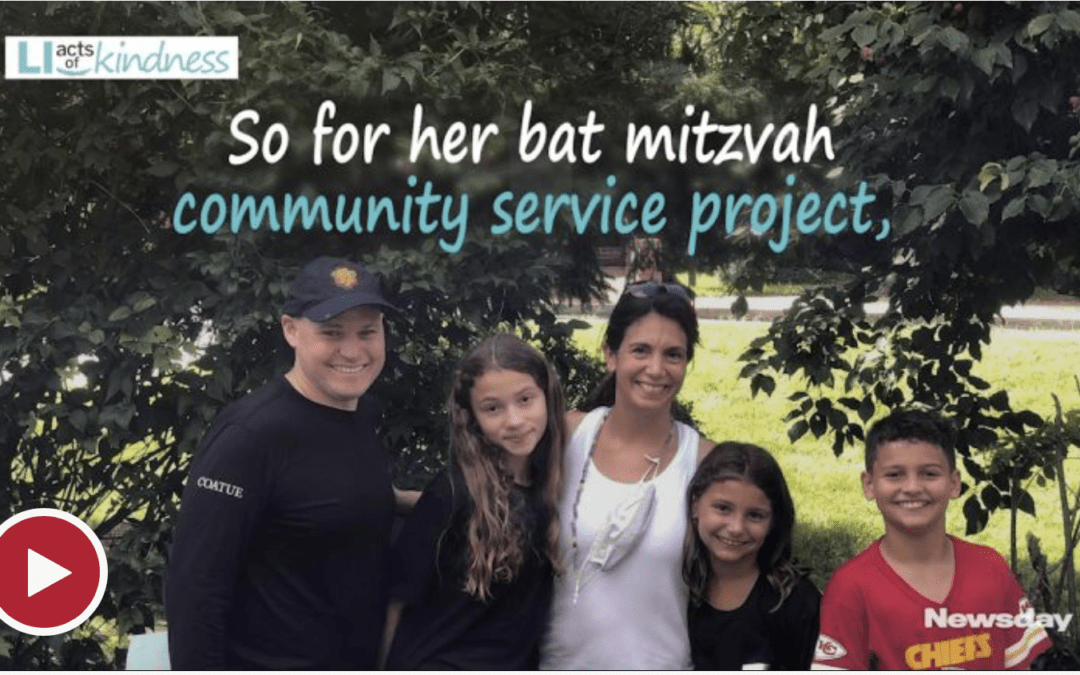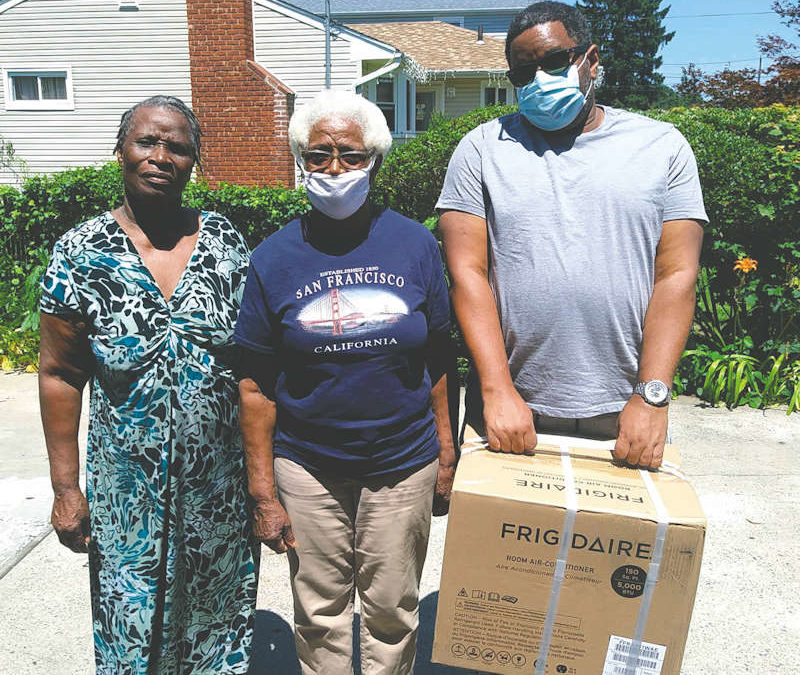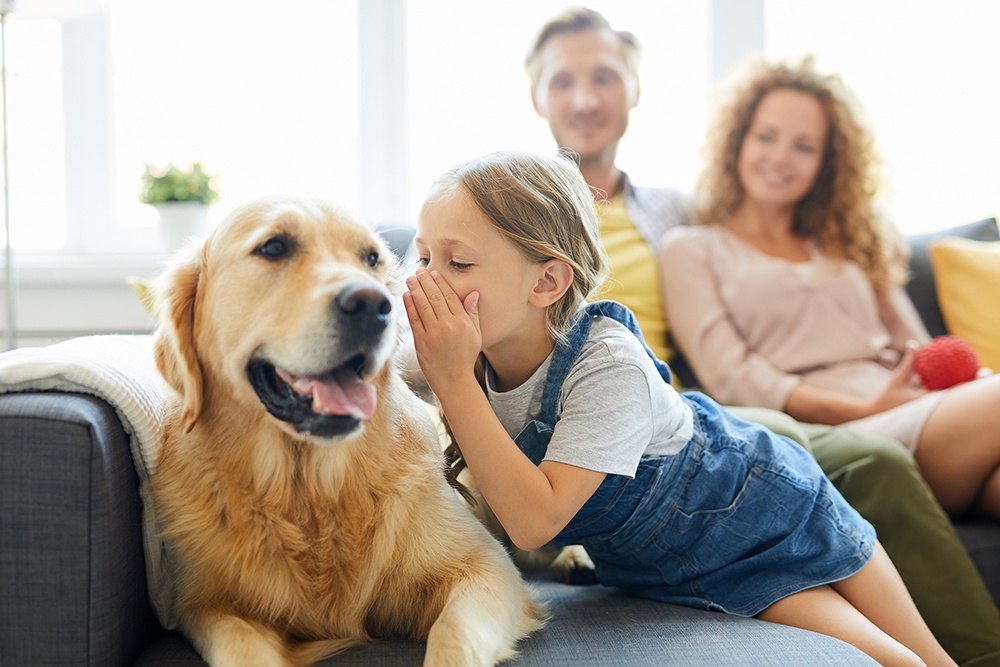
Power 30 Healthcare, Honoring Andrew Malekoff, Long Island Business News, September 24, 2020




As 13-year-old Sadie Feingold prepared for her bat mitzvah project this year, she had one goal in mind: to stop the stigma.
The eighth-grader from Port Washington knew she wanted to focus on mental health for her community service project ahead of her bat mitzvah, or Jewish coming-of-age ceremony. She wanted to encourage kids and teens to talk about mental health struggles and help normalize it.

She said she was inspired to focus on this topic because of her own previous struggles with mental health.
“The whole point was to raise awareness to it and normalize it,” Sadie said.
So after doing some research with her mom about the connection between exercise and children’s mental health, they came up with a plan: She would host an exercise class at their synagogue for local teens and families, and raise money to support the North Shore Child and Family Guidance Center in Roslyn Heights, a mental health agency that treats children and families.
The Guidance Center said her efforts have raised nearly $2,000.
“People don’t really talk about mental health as they do with physical health,” Sadie said. ”I think that some people feel like it’s not important, and I want people to feel like they should be able to talk about their emotions, as they would talk about like how they feel physically.”Best Bets
Get the scoop on events, nightlife, day trips, family fun and things to do on Long Island.Sign up
By clicking Sign up, you agree to our privacy policy.
The idea originated back in the winter — before the pandemic took hold. She and her mom read a piece in The New York Times that reported how even a moderate amount of exercise in adolescents can raise their endorphin levels, and in turn, help improve their mental health. Endorphins are hormones that promote feelings of natural well-being.
Sadie continued doing research on the topic, and once restrictions lifted and they could congregate outside, her class came together.
They invited family, friends and others to congregate in the parking lot of The Community Synagogue in Port Washington, and on Sept. 13, about 35 kids, teens and adults participated in the 45-minute class of individual exercises, led by a fitness instructor they knew.
They took donations at the class to support the Guidance Center — and encouraged those who couldn’t attend to donate as well. Sadie also gave out T-shirts with “#StopTheStigma” printed on them.
“I think it’s important … that kids feel comfortable, and so they’re not alone in dealing with these issues,” Sadie’s mom Jessica Feingold said. “It’s just something that tons of people deal with now more than ever, and I think it’s important to get that message out there.”
Sadie’s bat mitzvah had been originally scheduled for June, and was postponed to Sept. 26 because of the pandemic. But her mitzvah project only grew in relevance during this period.
Regina Barros-Rivera, associate executive director at the Guidance Center, said their work at the center has become more prevalent now, as the pandemic greatly affected children and teens. An effort like this one promotes “positive change” adolescents need, she said.
“For this young lady to create something — not only just that the exercise is good for you … it’s more that she’s creating, and she’s bringing,” she said. “Maybe more projects like this could be created.”
Barros-Rivera said the benefits from exercise and moving around for teens extend well beyond just energy level — it helps prevent them from ruminating, overthinking or feeling depressed or unable to move.
She added that the Guidance Center is offering virtual services for adolescents and families who might need help coping, and encourages them to reach out for help if they need it — even if they just have a question.
“Energy creates energy. Taking an action creates a change,” she said.

Seven families in the Westbury/New Cassel community have weathered the heat waves this summer, thanks to some devoted North Shore Child & Family Guidance Center supporters.
Two of the women behind this effort—Dr. Betty Hylton and Marian Williams—are longtime members of the Leeds Place Advisory Council, and also members of Alpha Kappa Alpha Sorority Inc.’s Pi Pi Omega chapter. Since 1987, the women of Pi Pi Omega have been helping the Westbury/New Cassel community in numerous ways, and the Guidance Center and its clients have been among the beneficiaries of their generosity.
Hylton reached out to the Guidance Center’s Dr. Nellie Taylor-Walthrust asking how Pi Pi Omega could help. Taylor-Walthrust immediately thought of the seniors who take part in C-GRASP, the Guidance Center’s Caregiver Grandparent Respite and Support Program, which provides support to grandparents who are the primary caregivers of their grandchildren. The program is a partnership with Project Independence from the Town of North Hempstead’s Department of Services for the Aging, which serves seniors through the township.
“I was concerned because many of the seniors sought relief during the hot summers at the Yes We Can Community Center, but with the coronavirus, they had no place to shelter,” said Taylor-Walthrust, who identified seven families in need.
Dr. Hylton suggested she call Marian Williams.
“I asked if the Pi Pi Omega chapter could buy fans for them, but Marian said, ‘Why don’t we get them air conditioners?’ ” Taylor-Walthrust related.
The Pi Pi Omega chapter only had enough money to purchase three new air conditioners, but Williams, along with her daughter and son-in-law, bought the four remaining air conditioners to ensure everyone’s comfort and safety.
“When I woke up the morning we were delivering the three air conditioners, I thought about the heat wave and how these four other families really needed them,” says Williams. “As a former social worker, my passion all my life is to help those in need, so I couldn’t let anyone be left out. When you are blessed, you need to bless other people.”
Sorority sister Elvira Daniels also was instrumental in the effort.
Marie Dextra, a Guidance Center C-GRASP client, says the donation of the air conditioner is making a big difference in her family’s life.
“All of us are now able to sleep better at night,” Dextra said. “I’m so thankful to all the people who made this happen.”
—Submitted by the North Shore Child & Family Guidance Center

October marks the beginning of Adopt a Shelter Dog Month, but if you’re thinking of adding a dog (or cat or other pet) to the family, adoption is a great way to go any time of year. You not only add a wonderful companion to your life, but also save a life.
Many families have adopted animals during the pandemic, since they’ve had more time at home to spend with their new pets. While it’s important to be sure you will be able to continue to care for your pet once life returns to a more normal schedule, the benefits to your children and teens are so numerous that you can be sure that the added responsibility is well worth it!
Just some of the benefits of having a dog or other pet for your family, according to the American Academy of Child and Adolescent Psychiatry: Developing positive feelings about pets can contribute to a child’s self-confidence. Positive relationships with pets can aid in the development of trusting relationships with others. And a good relationship with a pet can also help in developing non-verbal communication, compassion and empathy.
Pets provide unconditional love, which is important for every child, but especially helpful for kids who have difficulties with depression, anxiety and low self-esteem. In fact, research indicates that children with pets tend to have higher levels of empathy and feelings of self-worth compared to those who don’t have animals. They can also help children with issues such as shyness and autism with their social skills.
Some other benefits for kids of pet companionship: Leads to an increase in physical activity; reduces stress; provides companionship and social support; helps children learn responsibility; gives them someone to talk to; and fosters a connection with the natural world.
So, given the benefits to children’s mental and physical health of having a pet, visit your local shelter and bring a bundle of love home!
Want to learn more about pet adoption? Click here for a great source of information.
The decision to adopt a pet should never be made impulsively, since it is a long-term commitment. Before bring a pet home, read up on the responsibilities of pet ownership, here, or take these tips from the American Academy of Child & Adolescent Psychology:
Taking care of a pet can help children develop social skills. However, certain guidelines apply:
Long Island is home to many animal shelters and rescue groups. Following is a listing of many, but to find more, google “Long Island animal shelters” and “Long Island animal rescue.”
Almost Home Animal Rescue & Adoption
646 Route 112
Patchogue, NY 11772
(631) 627-3665
More Information
Animal Rescue Fund of the Hamptons (ARF)
124 Daniels Hole Road
East Hampton, New York 11937
(631) 537-0400
More Information
Bideawee
Westhampton
118 Old Country Road
Westhampton, NY 11977
Adoption Center – (631) 684-0079
Animal Hospital – (631) 325-0280
Volunteer – (631) 684-0079
More Information
Bobbi and the Strays
2 Rider Place
Freeport, NY 11520
(516) 378-4340
More Information
Brookhaven Animal Shelter
300 Horseblock Road
Brookhaven, NY 11719
(631) 451-6950
More Information
Forgotten Friends of Long Island Animal Rescue
(516) 719-0808
More Information
Jake’s Rescue Ranch
jakesrescueranch@gmail.com
More Information
Kent Animal Shelter
2259 River Road
Calverton, NY 11933
(631) 727-5731
More Information
Last Hope Animal Rescue
Wantagh Adoption Center – Dogs & Cats
3300 Beltagh Avenue
Wantagh, NY 11793
(631) 425-1884
More Information
Little Shelter Animal Rescue & Adoption Center
33 Warner Road
Huntington, NY 11743
(631) 368-8770
More Information
North Fork Animal Welfare League
(631) 765-1811
More Information
North Shore Animal League America
25 Davis Avenue
Port Washington, NY 11050
(516) 883-7575
More Information
Ollie’s Angels Animal Rescue
More Information
Our Best Friends Animal Rescue Inc.
More Information
Posh Pets Rescue
770 Park Place
Long Beach, NY 11561
(516) 431-7674
More Information
Remember Me Rescue
rmrescueny@gmail.com
(310) 623-0463
More Information
Ruff House Rescue
(516) 960-6388
More Information
Southampton Animal Shelter
102 Old Riverhead Road WEST
Hampton Bays, NY 11946
(631) 728-PETS (7387)
More Information
Tender Loving Cats, Inc.
1208 Deer Park Ave
North Babylon, NY 11703
1-866-458-8228 (ILUVCATS)
More Information
Town of Babylon Animal Shelter
80 New Highway
Amityville, NY 11701
(631) 643-9270
More Information
Town of North Hempstead Animal Shelter
75 Marino Avenue
Port Washington, NY 11050
(516) 944-8220
More Information
Town of Hempstead Animal Shelter
3320 Beltagh Avenue
Wantagh, NY 11793
(516) 785-5220
More Information
Town of Islip Animal Shelter
210 S. Denver Avenue
Bay Shore, NY 11706
(631) 224-5660
More Information
Town of Oyster Bay Animal Shelter
150 Miller Place
Syosset, NY 11791
(516) 677-5784
More Information
Sources:
https://www.mentalhealth.org.uk/a-to-z/p/pets-and-mental-health
https://www.humanesociety.org/resources/top-reasons-adopt-pet
https://theconversation.com/when-pets-are-family-the-benefits-extend-into-society-109179
https://napacenter.org/super-pets-how-pets-can-improve-social-skills-in-children-with-autism/
https://www.avma.org/resources-tools/avma-policies/guidelines-responsible-pet-ownership

In celebration of Hispanic Heritage Month, this week’s blog takes a look at our Latina Girls Project, which was created to respond to the alarming rate of depression, school refusal, self-harm, sexual abuse, suicidal ideation and attempted suicides by Hispanic teen girls.
In her work as Associate Executive Director at the Guidance Center, Regina Barros-Rivera has counseled numerous teens who suffer from depression and anxiety. But nearly a decade ago, she noticed a disturbing trend: An increasingly large number of first-generation Latinas were coming to the Guidance Center with severe depression, self-harming behaviors and suicidal thoughts. Many had stopped going to school, and some had been hospitalized for suicide attempts.
Barros-Rivera soon discovered that nationwide research mirrored what she was seeing at the Guidance Center. Studies show that Hispanic teenage girls are significantly more likely than their non-Hispanic peers to suffer from depression and thoughts of suicide.
As the daughter of immigrant parents, Barros-Rivera was gravely concerned—and determined to do something to help the teens and their families. She gathered a team of bilingual, multicultural counselors from the Guidance Center and created the Latina Girls Project, an innovative program that employs individual, group and family therapy, along with monthly outings and other activities, all designed to tackle issues such as depression, low self-esteem, school refusal and suicidal ideation.
In addition to bilingual individual, family and group therapy, the program incorporates a youth enrichment component that is comprised of monthly supervised outings to places such as theaters, museums and other cultural and educational sites. These trips, made possible by the generosity of John and Janet Kornreich, expose the girls to world in a way that would never have happened if not for this Guidance Center program. The trips also offer respite to the parents who are relieved to know that their daughters are in safe hands.
The pandemic has caused a temporary halt to these outings, and the girls have reported how much they miss them—a testimony to the importance the trips play in their lives.
As Barros-Rivera says, “The monthly trips play a significant role in the Latina Girls Project’s ability to transform these girls’ lives. They serve to boost their confidence and sense of independence. The girls also discover that there’s a great big world of opportunity out there for them, which allows them to feel hopeful about their futures.”
As one girl put it, “The therapy helped my mother and I communicate and become very close, and the monthly outings showed me a world I never would have seen. I felt that I wanted to be a part of the larger world. The trips gave me the feeling that I could be truly happy in my life.”
The Guidance Center looks forward to starting up the outings again as soon as it is safe to do so. In the meantime, we have continued to see clients via telehealth, making sure that the girls have support as they and their families navigate these very difficult times.
To learn more about the Latina Girls Project and other Guidance Center programs, visit www.northshorechildguidance.org or call (516) 626-1971.